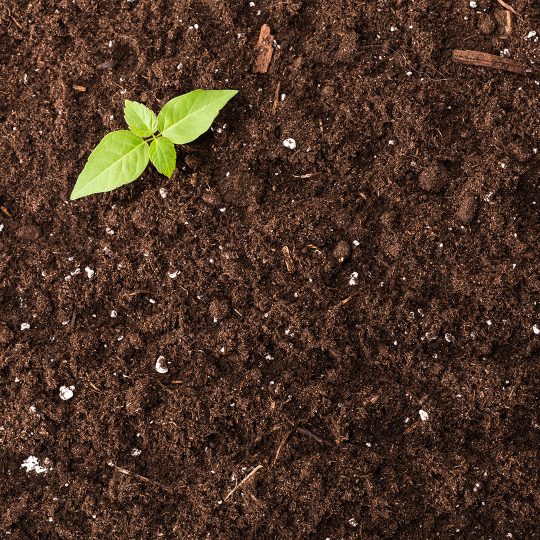3 Benefits of Testing Your Soil
What a Simple Test Tells You
Posted
February 20, 2025

How healthy is your soil? There’s an easy way to tell. Learn how soil testing can help provide vital information that could lead to improved plant growth, while also protecting the environment and saving you money.
What is Soil Testing
Testing your soil gives you insight into four main factors. All of these affect plant growth and overall health.
- Nutrients. Determine how much phosphorus, potassium, calcium, magnesium, and other minerals are in your soil. These levels are important at different periods of plant growth to strengthen roots, increase yields, and tolerate stress.
- pH. Different plants require different alkaline and acidic levels. Knowing the current levels in your soil helps you adjust fertilizers and minerals to fit your desired plants’ needs. Not adjusting the levels could create a toxic environment for certain plants.
- Texture. Plants also prefer soil particles to be a certain size. Test to find out whether your soil is more clay, sand, silt, or loam.
- Moisture. How well does your soil retain water? Hydration is a crucial component in root development and plant growth.
Soil changes over time. There are many factors that affect composition, such as weather and erosion, compaction from construction and foot traffic, and the breakdown of natural materials. This is why it’s important to test your soil every few years to determine its current condition. If you’re having trouble growing a certain plant or want to try to grow something new, testing your soil will help inform your decision based on what the plant needs.
Soil Test Benefits
Soil testing may be an additional step in maintaining your lawn and garden, but it’s one that has a number of benefits for you, your plants, and the ecosystem.
- Improve plant growth. Identify nutrient deficiencies and pH levels and choose the right fertilizers and amendments to regain balance.
- Protect the environment. Over-fertilizing can contaminate the soil and nearby water sources. Avoid this by only providing the nutrients it needs at a level it can effectively absorb.
- Save money. Spend less on fertilizer and amendments your soil doesn’t need. Also, you won’t waste time or money on planting in soil that won’t be hospitable for your plants. Healthy soil strengthens roots for plants and grass, so you’re also less likely to have to pay for costly lawn repairs and dying plants.
Testing your soil can be as simple as a DIY method or as comprehensive as a commercial test kit mailed in to a lab. Each should provide useful information on current nutrient levels and pH balance. You’ll gain a clearer picture on what nutrients may be lacking in the soil, or if it’s being contaminated by too many minerals. Then you can either pull back on the amount of fertilizer you use or add the ones formulated with the minerals you need to promote healthy growth.
If you’re unsure of the right method for testing your soil and providing the best foundation for your plants, reach out to the experts at Elite Tree Care. Our soil management program includes a consultation from one of our ISA-certified arborists. We can identify potential issues like pH deficiencies or soil compaction and recommend methods suited to your soil’s particular needs.
Call 610-935-2279 for a quote or to schedule a visit and learn more about how our techniques can help improve your soil quality and the health of your plants.